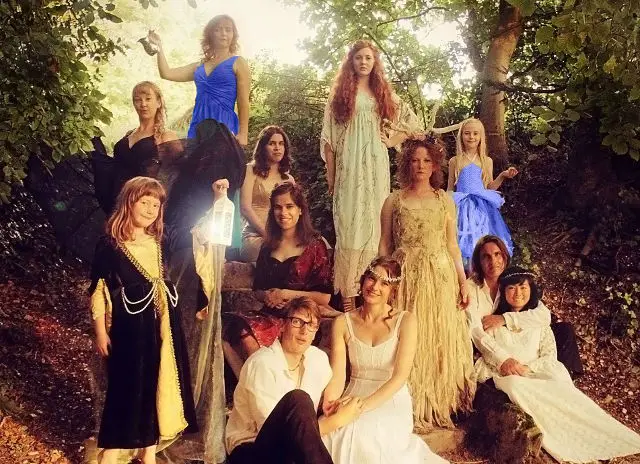Guest opinion articles do not necessarily reflect the views of the publication. Ed
We British love our Shakespeare. And there is something peculiarly British about Shakespeare’s plays. Apart from the magnificent language and the great stories and the marvellous characters, there’s always something that can strike a chord in anyone’s heart, whether that person is the highest or the lowest in the land.
The other thing we British have with our beloved Shakespeare is a remarkable and venerable history of putting on his plays in an enormous variety of places and venues, sometimes at great expense and using the greatest actors and directors in the land, and even more often in small stages using local talent in a far more intimate and close-up scenario. Thus we each make Shakespeare our own, and join ourselves to that great tradition.
The IWSC is a young company
I had the privilege of going to East Dene in Bonchurch this week, to watch the Isle of Wight Shakespeare Company putting on A Midsummer Night’s Dream. It wasn’t Midsummer, which doesn’t matter, but it was raining, which does, especially when the performance is supposed to be out in the open air. A speedy rearrangement had to be made and the play was put on in a courtyard with a glass atrium. To their credit, the production didn’t seem to suffer at all from the transition.
The IWSC is a young company, and Josh Pointing the Artistic Director with Hannah Brewer directing the play (and the play within the play) has made this the first production in an annual Shakespeare Festival. It was a resounding success.
Two young couples hopelessly mixed up in love
A Midsummer Night’s Dream is a difficult play, with two young couples hopelessly mixed up in love getting lost in the woods at night, and a sub-plot involving an argument between the king and queen of the Fairies. When magic is used to bewitch various characters into loving the first person they see when they awake, it turns into something of a forested bedroom farce, and there’s also a set of amateur actors trying to put on a play for the lords and ladies.
The young lovers have a difficult job of making themselves individual and memorable, when they have to emote in very black and white terms their love for or disgust of each other, and Patrick Barry and Hayley Allen as Lysander and Hermia, as well as Olly Fry and Emily Scotcher as Demetrius and Helena, were able to pull this off despite a lot of running around and sleeping and waking. They each had moments that were deeply affecting, and emerged with their dignity and characters intact.
Partly-human and partly-divine characters
Oberon and Titania, played by Shane Massey and Caroline Adkins, portrayed their partly-human and partly-divine characters with their own agendas in a way that made them satisfyingly believable.
The players, led by Josh Pointing as Bottom, made their antics both very funny and very affecting, which is a difficult trick to get right. Each of them made themselves into a real character too. Matthew Mckew created a Puck that was unique in my experience. Michael Mullin and Tess Attrill as Theseus and Hyppolita carried conviction in their roles, and the Chorus of Faeries moved and sang beautifully.
In the end all was well
The production flowed, the language was spoken with conviction, the mainly-young cast acted and played their parts smoothly, and in the end all was well, with the lovers attached to their correct partners and everyone going home satisfied.
The same could be said of the audience, who enjoyed it very much. It was well done. I’m looking forward to next year’s production.
Article edits: Amended roles for Josh Pointing and included reference to Hannah Brewer as director.
Image: © Isle of Wight Shakespeare Company





